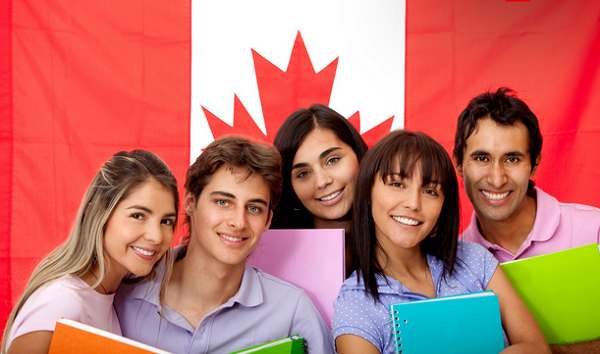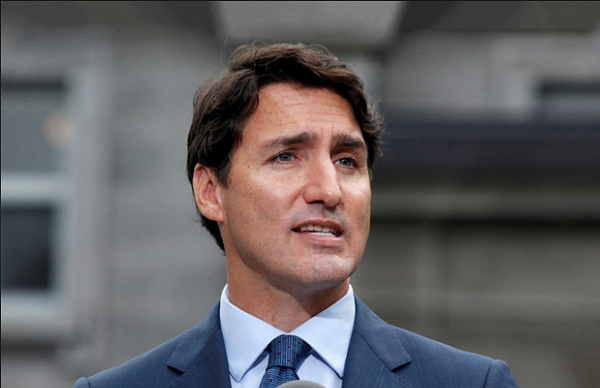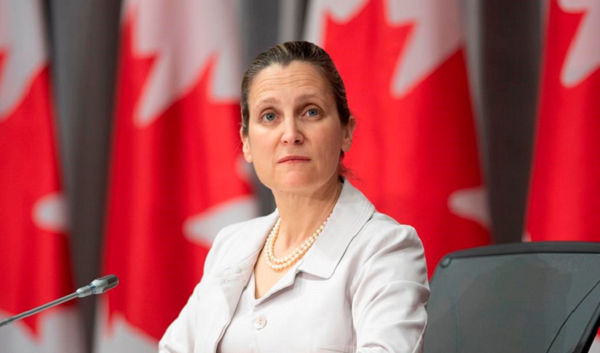Liberal government watches and awaits what comes next in U.S. election
Canadian politicians treaded down a rocky but familiar path through American election night uncertainty, with no clear winner yet declared but a second win by Donald Trump appearing likely.
The Canada-U.S. Interparliamentary Group organized a watch party across the street from Parliament. Ahead of U.S. polls closing, Liberal John McKay, the group’s co-chair, quipped: “I think it might be a prayer meeting.”
Prime Minister Justin Trudeau dropped by two other different watch parties, one where caucus members gathered at a bar off Parliament Hill, another at the home of a senior staffer, but would finish the evening back at Rideau Cottage, an official said.
Whether it’s Donald Trump‘s threats of 10-per-cent tariffs on all imports, mass deportations, and demands for more military spending, or Kamala Harris’ record of opposing the re-negotiated North American free trade deal at a time when it’s due for renewal in 2026, the stakes for Canada are enormously high, and across a range of files that includes defence, security, trade, immigration, environment, and protectionist Buy America policies.
So the election results, in McKay’s words, are “quite consequential.”
“One way (with a Trump victory), they are detrimentally consequential, and another way (with a Harris victory) they are still consequential, but maybe something you can work with,” he said.
Before votes were counted, most Liberals hewed to a PMO edict not to pronounce on either candidate, instead sticking to safe talking points.
“We’re going to work with whoever is successful,” said Health Minister Mark Holland. “But I hope it’s clear and peaceful and not too turbulent.”
Asked about his fears of post-election violence south of the border, Trudeau sidestepped, saying his job is to “work with whomever the Americans elect to be their president and make sure that I’m standing up for Canadian values, Canadian interests and Canadian jobs and that’s exactly what I’m going to continue to do.”
In Washington, Ambassador Kirsten Hillman said in an interview ahead of the vote that the Canada-U.S. relationship is broad, deep and resilient, not solely dependent on personal or partisan ties. “The vast, vast majority of things that political actors here — legislators or the administration — talk to us about are not particularly partisan,” she said. “This is really about getting stuff done together for the benefit of both countries. And ultimately, politically elected officials, that’s what they care about most — is delivering results for their constituents.”
Foreign Affairs Minister Mélanie Joly and cabinet colleague Industry Minister François-Philippe Champagne said during nine years in office, the Liberal government gained strategic contacts and experience working with three U.S. administrations under presidents Barack Obama, Donald Trump and Joe Biden. Months of outreach to U.S. decision-makers at federal, state and local governments, working with premiers, business leaders and unions, puts Canada in good shape, they insisted.
“We have all the phone numbers we need to manage the relationship on one side or the other,” Champagne said.
Champagne said Ottawa shifted the pitch from “friendly neighbour” to position Canada as a reliable national and economic security partner.
Still, Canada could face an ever more unpredictable and aggressive Trump administration or a more ideologically aligned yet also deeply protectionist Democrat administration under Kamala Harris.
Conservative Leader Pierre Poilievre used election day in the U.S. as a springboard to accuse Liberals of “capitulating” to Obama, Trump and Biden. In the Commons, he said Trudeau failed to protect Canadian interests the way he claimed Conservatives had under Stephen Harper, calling for a “carbon tax election” here.
Trudeau retorted, “we stood up against Donald Trump” during the last North American free trade re-negotiation, saying Conservatives including Harper urged Liberals to back down and accept concessions.
Many including some Liberals like McKay believe Canada will face more pressure to increase defence spending to two per cent of GDP.
Neither the Liberals nor Conservatives have committed to hiking military budgets to that level. Champagne and Joly sidestepped direct answers Tuesday about whether Canada would increase defence spending, now only scheduled to rise from 1.3 to 1.7 per cent of GDP by 2032.
This article was first reported by The Star













